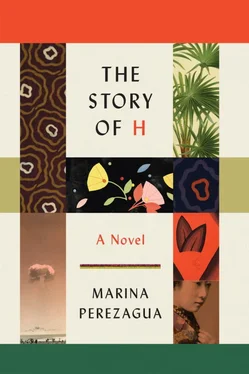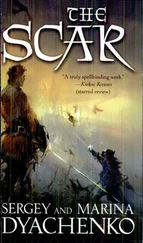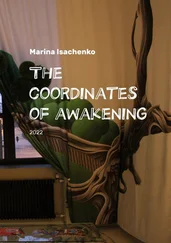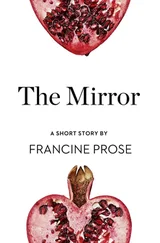Marina Perezagua
THE STORY OF H

I am a granddaughter of the Spanish Civil War, a member of a very long-lived family. As a baby, I was rocked to sleep by two great-grandparents, and I have been able to have mature conversations with two great-grandparents and all four grandparents. From such direct and vivid testimonies, I understand to some degree the fear of losing one’s life, the tragedy of killing a brother, the hunger and the chaos that follow a bombing. One of my earliest memories is an image: in Toledo, when it rained, red rivers flowed down the paved slopes, the rain mixing with the blood of neighbors, the baker, the teacher, who from one day to the next went from being friendly when they met one another on the street to being mixed in the flow of the same water pouring downhill. For me there was no Snow White, no Little Red Riding Hood—the stories my great-grandmothers told me were their own dramas: their husbands were soldiers who got drunk to ease the weight of their consciences; their children lay in the common graves of Spain without names on their tombstones.
When I think of the circumstances that make up this prehistory of mine, I consider the fact that I’m here right now, writing this note, to be a miracle. That all of my great-grandparents fought and survived the war in the most troubled areas of Spain, that of all the children they lost, none of them were the grandparents who had to survive to make me possible, is enough for me to confirm that my existence was improbable. And yet here I am, not only born but also having written this novel that has so much to do with the longevity of my elders. Although The Story of H confronts war, it moves away from the war in Spain in part as a result of that collective consciousness my grandparents gave me: I’m not just me, but the memory of all those who survived to make my birth possible. I therefore consider that writing about a war that wasn’t of my land, my blood, my flesh, is to accept that every war is everyone’s war.
If a girl in Hiroshima on August 6, 1945, hadn’t managed to survive the postatomic radiation after the explosion reduced a large part of her school to ashes, along with her teachers and classmates, I might never have become a writer, since I began to approach writing by the hand of one of the bomb’s descendants: a Japanese professor who, like me, like anyone, is a product of the miracle of surviving all of our wars.
It was that professor, a professor of art history at the Sophia University in Tokyo, who made the kintsugi technique my philosophy of life through writing. Just as pieces of broken pottery can be put back together by covering their cracks with a varnish of gold dust, so could I both in my day-to-day life and in what I write try to protect the historical and aesthetic value of scars. When I see a wound, I admire it because there, and not in our unbroken flesh, do I find the nature of being human: its vulnerability, but also the enormous energy that it requires to pick up our pieces from the ground, reunite them, and be born again. We are born as many times as we are capable of recovering. Only the belly button is a scar that proves that a woman gave birth to us. All other scars show that we are the ones who, so many other times, had to give birth to ourselves. We are all mothers when we fall, the mother who gives birth to us in each of those golden cracks that unite the mud that forms us but that has broken so many times, to be put together again, perhaps with a function more suitable to our own being, according to those desires that we weren’t able to fulfill before our fall.
My relationship with Japan is also a consequence of history: my family, on my father’s side, comes from Coria del Río, a town in Seville where Japón is a common last name, ever since the samurai Hasekura Tsunenaga was chosen in the seventeenth century to lead a diplomatic mission to the then-powerful Spain, which reached through the Guadalquivir River. A drop of that blood must remain in my family, and in myself, since I have felt a very special attraction to that country for as long as I can remember, an attraction not due to an interest in a culture that, in theory, is exotic for a Westerner. As a child, my family used to remind me that my ancestors came from Japan, and the attraction that I have always felt toward the country has been a literal, physical one, a kind of call that signifies, more than a trip, a return. When I went to Japan for the first time, on my first trip, I felt exactly that: that this wasn’t my first trip, but instead was a return to a home of sorts. Later on I heard someone on TV from Coria del Río say that, unfortunately, his father had died with the sadness of not having been able to return to Japan… even though he had never set foot there. Maybe that’s why my look toward Japan can’t be one of exotic distance. When I was a child, my mother told me Japanese legends as she fed me, until I was old enough to discover for myself—with the help of Spring Snow and the great Yukio Mishima—that Japanese literature was the one that most corresponded to my transformation from adolescent to woman, with its eroticism of change. This novel also deals with eroticism—with bodies and transformations.
And so, finally, I want to mention that, in parallel to the evolution of her atomic wounds, the protagonist of this novel lives out a biological drama, a drama of a sexual nature that has enslaved her in her body from the day she was born, when her parents decided that her sexual organs—debated as being those of a male or female—should be, for the rest of her life, those of a man. And they were wrong. They were so wrong in determining the sex of their daughter that only an event with the forcefulness of an atomic bomb could allow her a sort of redemption, given the particular circumstances of her case. What chance was there for a victim of the nuclear attack to express that, of all her relatives and close friends, only the bomb was able to recognize her as the person she really was? It seems a paradox that the victim of a massacre unprecedented in history comes to be grateful for some of its consequences, considering them of greater benefit to her than what was granted by the peaceful society into which she was born, a peacefulness that silenced her more than the war. In that way, the paradox is just an appearance of one. This is a novel that underscores the reality that in all acts, even in the most terrible, you can find a residue of hope, the opportunity to build a second life amid the rubble of the last bombing.
I hope you enjoy reading my story, and I’m grateful in advance for life and for those readers who, I trust, know how to desire peace between the lines of battle and of light.
—Marina Perezagua
This novel, Marina Perezagua’s first after two highly acclaimed story collections, announced the emergence of an audacious and original new voice on the literary scene in Spain. The novel is an extension of one of the stories in her collection Leche, whose protagonist, Marina said, wouldn’t let her go. As you read The Story of H, you will doubtless come to appreciate the truth of that. H is precisely the type of character who finds a spot in the imagination and makes herself very comfortable. She’s willful, a survivor, coy and brash all at once, a seductress, and exasperating and compassionate and so full of love. She’s all in one. You can almost hear Nina Simone in the background—“Ain’t Got No…”—crooning in her gritty, complex voice how she ain’t got no schooling, no home, no perfume, no uncles, no aunts, no love, not even a name. Then the song shifts and Nina chants, powerfully now, the “all” she does have—a body, a nose, her ears, her toes, her boobies, her sex. And finishes with “I’ve got my freedom. And I’ve got life… And I’m gonna keep it.” This is the song Marina Perezagua goes to when life becomes overwhelming. And in a way it is the soundtrack of this novel that narrates how, against all odds, an intersex child who survived the bombing of Hiroshima, who lost absolutely everything in that devastating detonation—family, home, even sex—finds, at great cost, meaningful love and a family. H abides, even without a name.
Читать дальше













